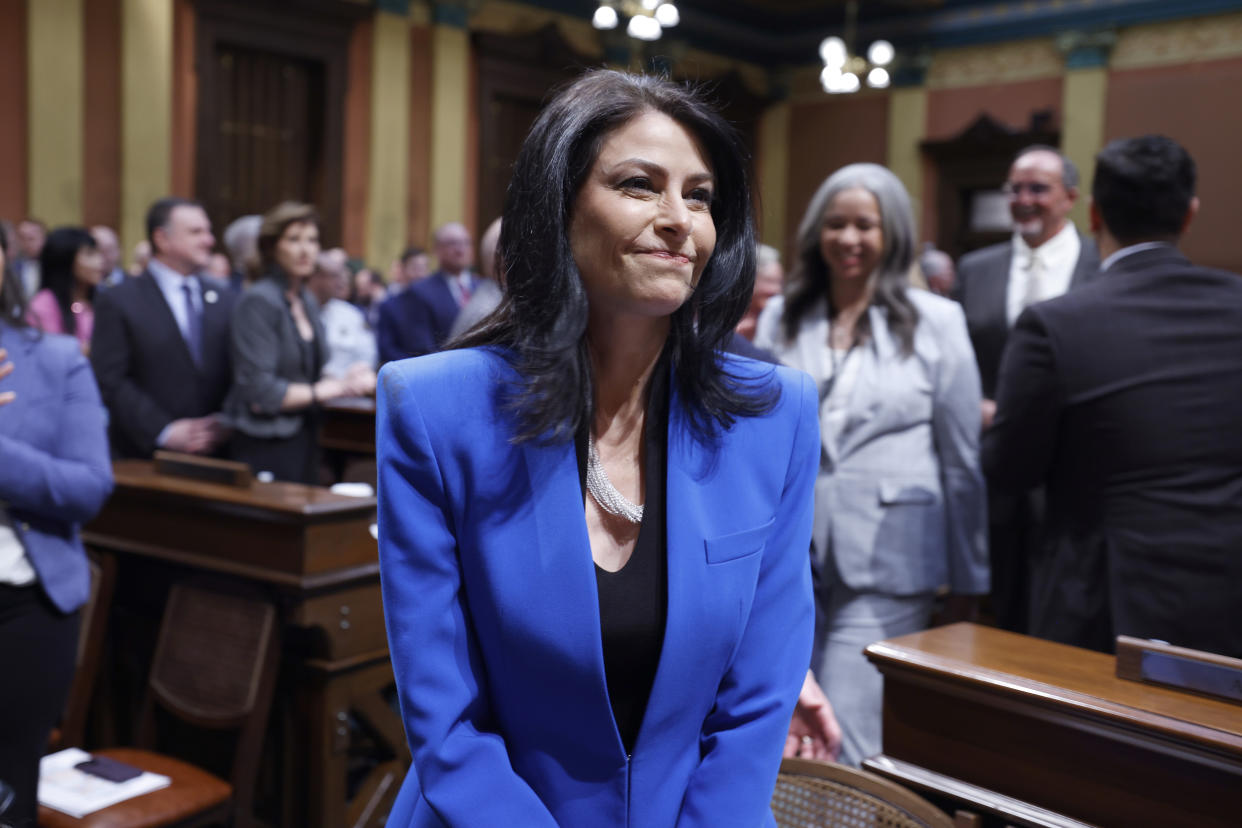Michigan judge rules defendants accused in false elector scheme will not have charges dropped

- Oops!Something went wrong.Please try again later.
- Oops!Something went wrong.Please try again later.
LANSING, Mich. (AP) — Michigan defendants accused of participating in a fake elector scheme will not have their charges dropped after the state attorney general said the group was “brainwashed” into believing former President Donald Trump won the 2020 election, a judge ruled Friday morning.
The decision comes after motions to dismiss charges were filed last week by two defendants, Clifford Frost and Mari-Ann Henry. The two defendants are part of a group of 16 Michigan Republicans who investigators say met following the 2020 election and signed a document falsely stating they were the state’s “duly elected and qualified electors.” Each of the 16 faces eight criminal charges, including multiple counts of forgery.
President Joe Biden won Michigan by nearly 155,000 votes, a result confirmed by a GOP-led state Senate investigation in 2021.
Attorneys for the defendants argued the case should be thrown out before it began after Michigan Attorney General Dana Nessel said during a Sept. 18 virtual event that the electors “legit believe” Trump won the election.
"These are people who have been brainwashed,” Nessel said, adding that the case would be tried in a county that is “very, very Democratic-leaning.”
An Ingham County District Court judge, Kristen Simmons, said Friday morning that the state attorney general's comments were “speculation” and were not enough evidence to dismiss the case. She said the matter could be further discussed at evidentiary hearings that are set to begin Oct. 12.
Michigan is one of seven states where false Electoral College certificates were submitted declaring Trump the winner despite the confirmation. But it’s the only state where the accused false electors face criminal charges.
In a motion to dismiss charges, attorneys for both Henry and Brown had argued Nessel's comments were an admission from prosecutors that there was no criminal intent behind the actions, which is required for all eight of the charges.
Nessel's office argued in response that the judge could not determine if there was sufficient evidence of intent without first holding a preliminary examination, also known as evidentiary hearings. The office called Nessel's comments “abbreviated remarks that she intended for a private audience" and said it was an opinion that was not relevant to the case.
Henry and several others, including former Michigan GOP co-chair Meshawn Maddock, are scheduled to appear for the Oct. 12 hearing. During this hearing, Judge Simmons will determine whether probable cause exists for the cases to move forward. All 16 defendants have pleaded not guilty.

